Welcome to the Music and Brain Summer Workshop organized by the Tsinghua Laboratory of Brain and Intelligence! This exciting program will take place from August 4 to 8, 2025, on Tsinghua University campus in Beijing.
The workshop will admit 20 participants who are passionate about music and have a background in mathematics, engineering, neuroscience, or cognitive psychology (graduate students or senior undergraduates), as well as young faculty from conservatories or arts-related academic institutions.
Workshop Objectives
The workshop is designed to spark interest in music and brain science, while providing systematic theoretical knowledge and technical training. It aims to foster interdisciplinary training by:
· Guiding participants with quantitative and engineering backgrounds to develop thinking skills and data analysis techniques in music and brain research.
· Training participants from artistic backgrounds in scientific reasoning and research methodologies in neuroscience.
The workshop will have an outstanding faculty team, including experts from Tsinghua University and other top institutions. Professor Israel Nelken, Director of the Edmond & Lily Safra Center for Brain Sciences at the Hebrew University of Jerusalem, will be among the workshop lecturers. Prof. Nelken will share international frontiers in music neuroscience theory and methods. The renowned pianist Xiangdong Kong will also join us to lead a session on music therapy practice and engage in deep dialogue with participants.Interested individuals are encouraged to scan the QR code below to apply by June 30, 2025.

Application link: http://wenjuan.tsinghua.edu.cn/s/R7NNba/
Contact: [email protected]
Workshop Schedule
August 4 (Monday)
8:30 — 11:30
-Opening Remarks
-Overview of Music Neuroscience (Xiaoqin Wang)
-Pitch Perception and Neural Representation (Xindong Song)
14:00 —17:30
-Introduction to Neuroscience Equipment I
-Hands-on Training I
August 5 (Tuesday)
9:00 — 11:30
-From Sound to Music: How the Brain Processes Organized Sound (Israel Nelken)
-Neuroscience in the Concert Hall (Juan Huang)
14:00 —17:30
-Introduction to Neuroscience Equipment II
-Hands-on Training II
August 6 (Wednesday)
9:00 — 11:30
-Music and Animal Behavior (Israel Nelken)
-Music Performance and Perception in Virtual Reality (Dangxiao Wang)
14:00 —17:30
-Musical Ensemble & Live Music Neuroscience Experiment I
August 7 (Thursday)
9:00 — 11:30
-Real-World Social Neuroscience with Hyperscanning and Inter-Brain Coupling (Dan Zhang)
-Brain-Computer Interface-Based Music Perception Decoding and Applications (Jing Chen)
14:00 —17:30
-Musical Ensemble & Live Music Neuroscience Experiment II
August 8 (Friday)
8:30 — 11:30
-Music, Wellbeing, and Emotional Care (Xiangdong Kong)
-Live Demonstration of the “Four-Tone” Piano Improvisation Therapy by Mr. Kong
14:00 —17:00
-Laboratory Tour
-Rehearsal: Artistic Volunteers and Experimental Preparation
19:00 — 21:00
-Workshop Concert: “Where Sound Begins, Mind and Brain Resonate”
-Closing Ceremony
Faculty Biographies
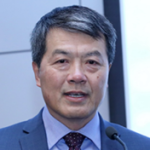
Xiaoqin Wang
Director, Tsinghua Laboratory of Brain and Intelligence (THBI)
Professor, Department of Psychological and Cognitive Sciences, Tsinghua University
Dr. Wang received his Ph.D. in Biomedical Engineering from Johns Hopkins University and is a leading scientist in the field of auditory neuroscience of non-human primates. In recent years, his research has focused on the neural mechanisms underlying the brain’s processing of musical signals, musical emotion, and musical memory. Prof. Wang has made important scientific discoveries in the neural coding mechanisms of the auditory nervous system which have advanced our understanding of how the brain processes speech and music, both in normal function and in disease. These discoveries have been included in major neuroscience textbooks.
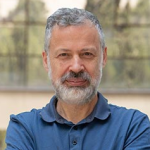
Israel Nelken
Director, Edmond & Lily Safra Center for Brain Sciences, Hebrew University of Jerusalem
Professor of Neuroscience, Hebrew University and Israel Institute for Advanced Studies
Dr. Nelken received Ph.D. from the Hebrew University of Jerusalem. Professor Nelken is a world-renowned auditory neuroscientist. He currently serves as a professor at the Edmond & Lily Safra Center for Brain Sciences (ELSC) and the Department of Neurobiology in the Faculty of Life Sciences at the Hebrew University of Jerusalem, and holds the Milton and Brindell Gottlieb Chair in Brain Sciences. He is one of the founding members of Edmond & Lily Safra Center for Brain Sciences of Hebrew University of Jerusalem. Professor Nelken’s research focuses on how the brain processes sound, with particular emphasis on predictive mechanisms, auditory cognition, and cross-species comparisons. He completed his postdoctoral training at Johns Hopkins University and has long been committed to advancing interdisciplinary research at the intersection of neuroscience, computation, music, and artificial intelligence. He is a recipient of the Michael Bruno Prize, one of Israel’s highest scientific honors, as well as the Humboldt Research Award from Germany.
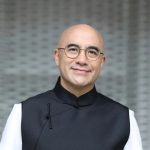
Xiangdong Kong
Renowned Pianist and Music Philanthropy Advocate
Mr. Xiangdong Kong is one of China’s most internationally acclaimed pianists and a pioneering advocate for music therapy and public emotional well-being. He has received numerous prestigious awards, including the Bronze Medal at the Tchaikovsky International Piano Competition, Gold Medal at the Gina Bachauer International Piano Competition (USA), and Gold Medal and four special prizes at the Sydney International Piano Competition. His performances have graced concert halls in more than 40 countries worldwide.
He was the first Chinese pianist invited to give a solo recital at Vienna’s Golden Hall, and the first Asian pianist to sign with leading global record label BMG/RCA. Mr. Kong has collaborated with many renowned orchestras both in China and internationally, including the Shanghai Symphony Orchestra, Hong Kong Chinese Orchestra, Russian National Symphony Orchestra, Sydney Symphony Orchestra, and the Los Angeles Philharmonic.
In recent years, he has dedicated himself to bringing music from the stage into society—offering emotional support to individuals with autism, Alzheimer’s disease, and broader communities through improvisation and cross-disciplinary engagement. He actively participates in charitable concerts and healing-focused experimental projects, and has long collaborated with neuroscientists to explore the mysteries of music and the brain.
As a UNICEF Goodwill Ambassador and Vice President of the China Association for the Mentally Challenged Arts, Mr. Kong uses music to build bridges—connecting individuals with society, art with science, and life with emotion.
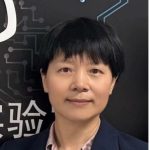
Juan Huang
Associate Research Scientist, Johns Hopkins University
Visiting Scholar, Tsinghua University
Dr. Huang received her Ph.D. in Psychology from Peking University. She currently leads the Music and Brain research team at the Tsinghua Laboratory of Brain and Intelligence. She has held academic positions at the School of Information Science and Technology at Peking University and the Departments of Biomedical Engineering and Neuroscience at the University of California, Irvine. Since 2009, she has been engaged in research and teaching at the Mind and Brain Institute, the Department of Biomedical Engineering, and the Peabody Conservatory at Johns Hopkins University. Dr. Huang’s research focuses on the psychophysics and neuroscience of auditory and tactile integration, and she is deeply involved in interdisciplinary studies in music perception and neuroaesthetics. Since joining Tsinghua University in 2022 as a visiting scholar, she has been driving research in music neuroscience centered on Live music listening and performance, bringing international perspective and innovations to the integration of science and arts.

Dangxiao Wang
Deputy Director, State Key Laboratory of Virtual Reality Technology and Systems
Professor, Beihang University
Dr. Wang received his Ph.D. in Mechanical Design and Theory from Beihang University. Prof. Wang is a member of IEEE and the China Computer Federation. He has served as a senior visiting scholar at Stanford University and a government-sponsored visiting scholar at the Karolinska Institute in Sweden and the University of North Carolina in the United States. His main research areas include machine haptics, cognitive touch, brain-computer interaction, and medical robotics.

Xindong Song
Principal Investigator, Institute of Automation, Chinese Academy of Sciences
Adjunct Professor, School of Artificial Intelligence, University of Chinese Academy of Sciences
Adjunct Investigator, Tsinghua Laboratory of Brain and Intelligence
Dr. Song received his Ph.D. in Biomedical Engineering from Johns Hopkins University. Dr. Song’s research focuses on developing novel high-throughput optical tools and methods for brain function reading and writing in primates (optical brain-computer interfaces). His work aims to elucidate the cortical processing mechanisms underlying higher-order cognition in primates, while generating large-scale, high-coverage, and high-precision functional brain data to drive the training of machine auditory models that more closely align with real brain functions.
He has been recognized with several prestigious honors, including the Kavli Postdoctoral Award for Excellence in Neuroscience and the 39th Young Investigator Award from the Johns Hopkins University School of Medicine.
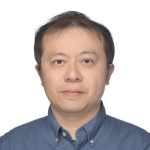
Dan Zhang
Associate Professor, Department of Psychological and Cognitive Sciences, Tsinghua University
Dr. Zhang received his Ph.D. in Biomedical Engineering from Tsinghua University and conducted postdoctoral research at Tsinghua University School of Medicine from 2011 to 2013. Since 2013, she has been a faculty member in the Department of Psychology within the School of Social Sciences and later the Department of Psychological and Cognitive Sciences at Tsinghua University. Her research focuses on developing intelligent psychometric methods and applications using techniques such as EEG, near-infrared spectroscopy (fNIRS), and wearable neurophysiological sensors, with applications in mental health, learning science, and human-computer interaction.
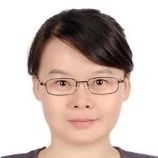
Jing Chen
Principal Investigator, School of Intelligence, Peking University
Affiliated Investigator, National Biomedical Imaging Center
Dr. Chen received her Ph.D. in signal and information processing from Peking University. She previously served as a Research Associate at the Auditory Laboratory in the Department of Experimental Psychology at the University of Cambridge and as a Fellow at Wolfson College, University of Cambridge. She was also selected as a Newton International Fellow by the Royal Society of the UK. Her main research areas include speech information processing, computational auditory modeling, psychoacoustics, hearing compensation technologies, and neural encoding and decoding.
